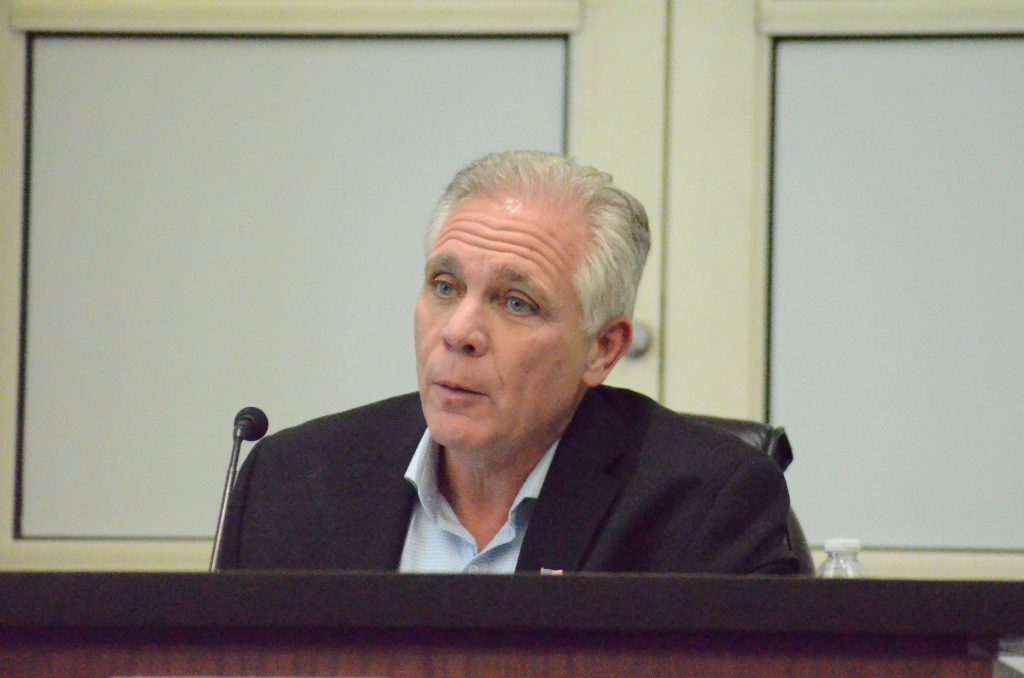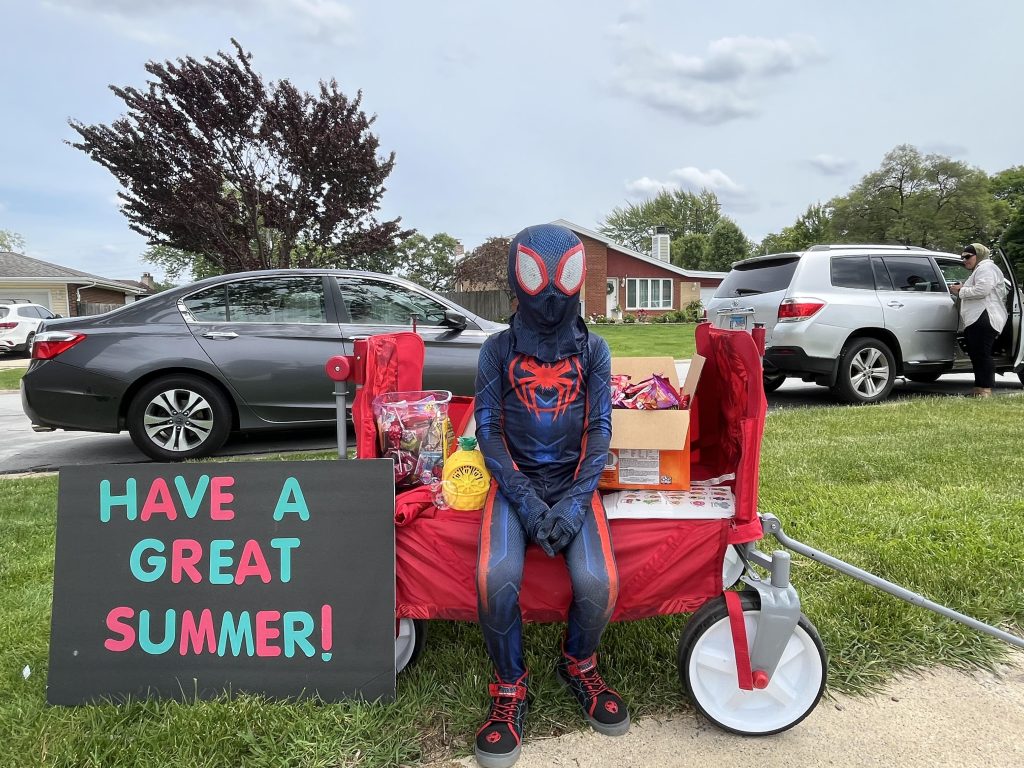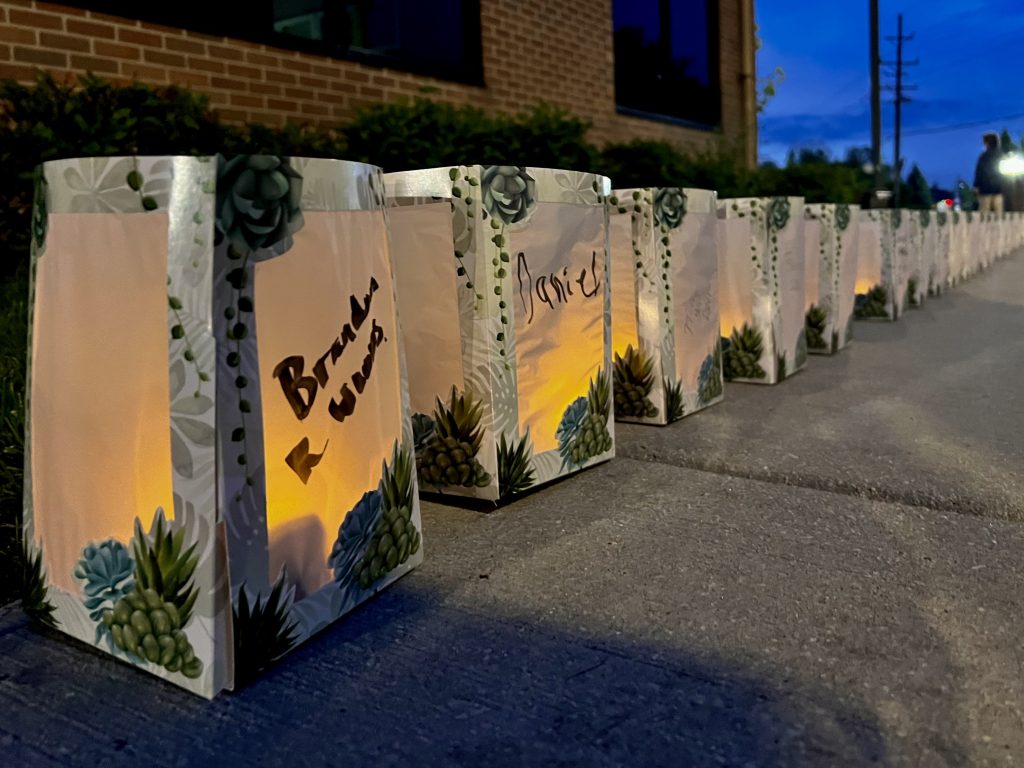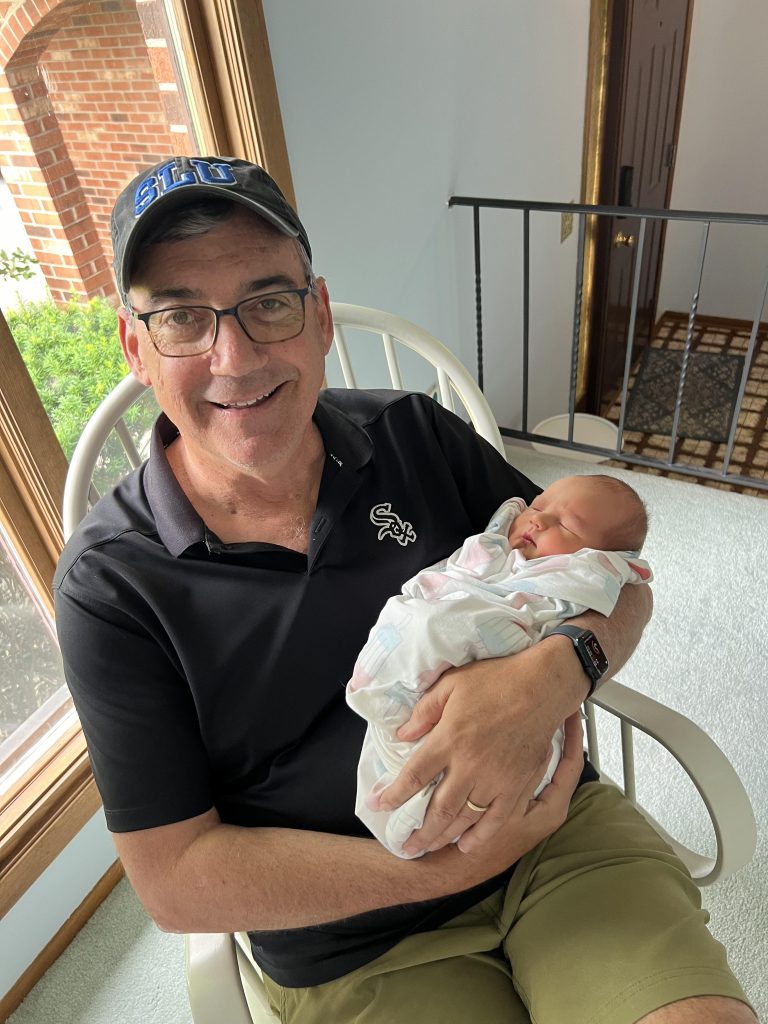
WITH PODCAST: Disinvestment, pandemic leave Illinois’ state of mental health care in ‘crisis’
By GRACE BARBIC
Capitol News Illinois
gbarbic@capitolnewsillinois.com
SPRINGFIELD – Rooted in disinvestment and growing amid economic repercussions of the COVID-19 pandemic, Illinois is facing a statewide mental health crisis due to workforce shortages and accessibility.
“It’s been recognized that we are no longer in an emergency, we’re in a crisis,” said Marvin Lindsey, CEO of the Community Behavioral Healthcare Association of Illinois, which is a statewide association of mental health, substance abuse and youth service providers.
Lindsey was also the chairman of the Behavioral Health Workforce Education Center Task Force that reported their findings to the General Assembly in 2019.
Among that report’s findings was that Illinois residents and mental and behavioral health care providers alike face barriers to quality care due to lack of state funding over the years and exceptionally “low” Medicaid rates for behavioral health care, which has led to workforce shortages.
“The reality of it is 38 percent, or 4.9 million people in Illinois, live in designated mental health shortage areas,” Lindsey added.
Listen to an audio version of this story here:
Problems with the mental health care system
Marie Krysnoski, of Monroe County, was diagnosed as bipolar in 1995 and has been impacted directly by workforce shortages. She considers herself “self-taught” when it comes to navigating the mental health system.
Learning how to navigate the complex system alone led her to her current position as an administrative assistant with the National Alliance on Mental Illness of Illinois. Krysnoski left her corporate job to work with NAMI’s help line, assisting Illinois residents in getting the mental health services they need.
While the shortages have impacted nearly all demographics, the lack of access to resources and services is especially relevant in rural areas and among low-income and underinsured individuals and families, which has created “mental health deserts,” according to lawmakers and mental health providers.
In fact, the task force’s report found 30.3 percent of Illinois’ rural hospitals are in designated primary care shortage areas and 93.7 percent are in designated mental health shortage areas.
In some cases, Illinois lawmakers note, residents are expected to travel over 250 miles from their home to access necessary resources, some even turning to out-of-state care. While demand for quality mental and behavioral health care increases, the workforce is dwindling, Lindsey said.
Krysnoski said she is lucky to have good insurance that allows her to rely on out-of-state care. Living in the Metro East area near the Missouri border, she travels to St. Louis for mental health care services after learning the hard way that she was unable to get adequate care in the state.
“Getting an appointment on a regular interval was extremely hard,” Krysnoski said. “If (the doctor) would say come back in a month, I was lucky to get back in a month and a half, and that’s just because there was so much demand.”
While they are similar in terms of services, mental health deals primarily with an individual’s state of being and behavioral health refers to how behaviors impact an individual’s well-being.
The task force’s research shows the workforce shortages can be seen in every type of health care and social service setting, from residential facilities and hospitals to community-based organizations and primary care clinics.
Without adequate funding from the state, services and staff have been reduced. The task force report found that Illinois has a 480-1 ratio of population to mental health professionals, ranking 29th in the country in mental health workforce availability, according to Mental Health America.
The report also noted only 23.3 percent of Illinoisans’ mental health needs can be met with its current workforce, according to Kaiser Family Foundation estimates. This means long wait times for appointments with psychiatrists, up to 4-6 months in more extreme cases.
On top of wait times, affordability is another significant barrier to adequate care.
The Senate and House mental health committees have heard a number of testimonies from Illinois residents that have gone to extremes to afford the care they or their loved ones need.
In one instance, Illinois resident Marcia Festen testified before the House Mental Health and Addiction Committee in support of House Bill 2595, sponsored by the chair of the committee, Rep. Deb-Conroy, D-Villa Park. The bill is focused on insurance coverage of medically necessary mental, emotional, nervous or substance abuse disorders and how that is defined.
Festen’s daughter Ruby was diagnosed with a number of mental illnesses at once and required intensive daily care. They went back and forth with the insurance company about coverage for this care.
The family ended up paying $250,000 out of pocket over two years because the insurance company denied coverage, claiming the care was not medically necessary. The family refinanced their home, spent their retirement account, drained their daughter’s college savings and had relatives lend them money to afford the bills.
“How can a family with such privilege afford this…they don’t,” Festen said in her March 26 testimony. “So I’m asking you to please do something to hold insurance companies accountable. Without this level of treatment, my daughter was headed to the streets or jail, and it shouldn’t be this way.”
While residents without insurance face more barriers, Medicaid recipients also face challenges to getting proper care.
“If I was on Medicaid and locked into Illinois and having a mental illness, it would be extremely difficult,” Krysnoski said. “My sister is on Medicaid…her doctor’s offices would just send people in crisis to the ER, which creates higher expenditures for the state.”
A study conducted by the University of Southern California Schaeffer Center for Health Policy and Economics noted that Medicaid provides a safety net for people with low income or qualifying disabilities, and a large percentage of people with Medicaid coverage experience behavioral health issues.
The report, The Cost of Mental Illness: Illinois Facts and Figures, found that “it is often a financial burden for physicians to accept Medicaid patients since reimbursement rates are generally lower than for other patients. This can lead to access barriers for patients with Medicaid coverage that prevent them from receiving the behavioral health care they need.”
Krysnoski said the alternative to being sent to the emergency room in a mental health crisis would be to call out a crisis team, but a lot of times the psychiatric beds are all full.
“When you are in a crisis, you need to go (get help) now, but they’re on a waitlist, it could be today, it could be in a few days, months, we don’t know,” she said.
“It’s devastating. It’s helpless, you feel helpless,” she added. “There’s nowhere to turn. Sometimes you have family or loved ones. Other times you’re completely alone. And you just wait.”
Legislative solutions
Issues with the mental health care system existed long before the pandemic.
The 2019 task force report found the state should consider the creation of a Behavioral Health Workforce Education Center to “lead a cross-agency, cross-sectoral strategy to improve access to a qualified diverse workforce providing evidence-based behavioral health prevention, treatment, and recovery services.”
Such a workforce center was created – but not funded – in House Bill 158, the Illinois Legislative Black Caucus’ health care reform bill, which was recently signed into law.
While the pandemic has exacerbated the mental health care shortage, Lindsey said he places significant blame on the two-year-long budget impasse which occurred between 2015 and 2017 while Republican Bruce Rauner controlled the governor’s office and Democrats Rep. Mike Madigan and Sen. John Cullerton led both chambers of the General Assembly.
NAMI Illinois published an article in May 2016, when the budget impasse was just at the 10-month mark, drawing attention to its effects on mental health services. Lindsey was quoted in the article saying because of the lack of investment, “the state’s mental health service infrastructure is being destroyed.”
In Illinois Comptroller Susana Mendoza’s report, Consequences of Illinois’ 2015-2017 Budget Impasse and Fiscal Outlook, she said evidence-based substance use and mental health treatment were one of the many programs and institutions which provide positive economic return on investment that suffered greatest during the impasse.
“The disproportionate cost of the impasse on the most vulnerable of Illinois’ residents, including, for example, those in need of mental health services or low-income students pursuing higher education, was real and lasting,” Mendoza wrote.
One of the most detrimental cuts was to psychiatric care grants, Lindsey said, because the grants aid in hiring and retaining psychiatrists and supplement Medicaid reimbursements.
“People started leaving because they couldn’t get paid an adequate salary,” Lindsey said. “I mean they could go other places, especially licensed people, like hospitals or insurance companies and make a lot more than what members of community mental health centers were able to pay because of the state’s low rates.”
A bill that would address reimbursement rates for mental health services, Senate Bill 476, sponsored by Chicago Democrat Sen. Sara Feigenholtz, has stalled in committee.
The vacancies also mean there are less qualified workers in the system. Georgianne Broughton, executive director of Community Resource Center, a nonprofit behavioral health service provider in Fayette County, attested to this in the Behavioral Health Workforce Education Center Task Force Report.
“We have had no applicants for clinical positions who have possessed a master’s degree or license since 2018. In 2019 we have only been able to hire individuals with bachelor’s degrees and no experience or minimal experience to fill clinical positions,” Broughton said in the report.
House Bill 2784, sponsored by Rep. Kelly Cassidy, D-Chicago, has the goal of expanding and streamlining adult mobile services to assist individuals experiencing mental health or substance abuse crises to avoid the unnecessary involvement of law enforcement.
“When you call 911 for a mental health crisis you don’t get a mental health response, you typically get a police criminal response,” Cassidy said in a committee hearing. “This is led to unnecessary and dangerous situations here and around the country, and it aims to create alternatives that allow well trained mental health professionals to respond to these crisis situations.”
The measure passed 110-0 on April 23 and awaits action in the Senate.
Sen. Laura Fine, D-Glenview, named chair of the newly created Senate Mental and Behavioral Health Committee, said that she believes mental health is just as important as physical health and she wants people to understand that it is not a weakness to seek out care.
“Because when it comes to things like mental health or any health, many people are far more comfortable seeking those services from somebody who’s, culturally, in the same arena as they are,” said Fine. “And so we have to encourage people from all sectors of the state to go into these fields so we can provide for our communities.”
The Behavioral Health Workforce Education Center would create another way for the state to train, retain and educate a diverse workforce to represent the many unique communities of the state. It is modeled after an initiative in Nebraska that between 2010 and 2018, with a similar center in operation, reported a nearly 17 percent increase in its behavioral health workforce.
“And if we could use their models to model here in Illinois, it’s not going to change the problem overnight, it’s not going to solve every issue, you know tomorrow, but it will put us on the path to solve the issue as we move forward,” Fine said.
But there is still no definitive form of funding to get this center open and operating in Illinois.
The pandemic brought about a new solution to mental health services – telehealth – which allows those dealing with a mental health crisis to seek help virtually.
“Our members went from primarily face-to-face service, to primarily telehealth services almost overnight because of the pandemic,” Lindsey said. “And so they were able to do that because of the governor’s emergency orders which relaxed some of the regulations that were preventing them from providing more telehealth services.”
House Bill 3498, sponsored by Rep. Deb Conroy, D-Elmhurst, calls to make those emergency telehealth orders permanent. It passed out of the House and is up for consideration in the Senate.
There are a number of other mental and behavioral health specific bills up for consideration in the 102nd General Assembly, looking at accessibility through out-of-state care and collaborative care models, among others.
But Fine said investment from the state will be essential.
“COVID-19 has really highlighted the necessity to invest in the mental health care system throughout the state,” she said. “And so I’m hoping as we do the budget for this year that mental health is on everybody’s radar screen and we will be able to get increased funding for what is so necessary in our state.”
Capitol News Illinois is a nonprofit, nonpartisan news service covering state government and distributed to more than 400 newspapers statewide. It is funded primarily by the Illinois Press Foundation and the Robert R. McCormick Foundation.
Local News

College Report: Division I schools listening to Heard
Spread the loveBy Jeff Vorva Staff Writer Tadriana Heard is ready for a second round of Division I basketball. The former Argo star is playing her second season for Morton College, and heading into this week’s action was first in the nation among National Junior College Athletic Association players with 64 3-pointers. She was also…

Mayor reads hate mail before diving into COVID and crime issues
Spread the loveBy Jeff Vorva Before Tuesday’s village board meeting, Orland Park Mayor Keith Pekau said he received a disturbing email. The mayor, who shoots from the hip when it comes to his beliefs is a controversial public figure and figures to get hate mail. This one was especially nasty. “I figured that since I…

Boys Basketball: Evergreen Park riding out toughest stretch of schedule
Spread the loveBy Jeff Vorva Staff Writer So, how did Evergreen Park get to 9-6 over in its first 15 games? The Mustangs took a rollercoaster ride. In a nutshell: They started the season with four consecutive wins, lost the next three, won five straight and then dropped three in a row. The latest three-game…

Loving the Archer Heights Library
Spread the loveBy Mary Stanek Your correspondent in Archer Heights and West Elsdon 3808 W. 57th Place • (773) 284-7394 Well, that’s it, folks. The holidays are over. Next up in the market are Valentine’s Day candy, paczki, corned beef, Guinness and Peeps. Easter this year is on April 17. I will have to mention…

New year, old challenges
Spread the loveBy Peggy Zabicki Your correspondent in West Lawn 3633 W. 60th Place • (773) 504-9327 It’s a new year and a time for new beginnings. Many of us will be starting a new diet program. I plan to do this as soon as I’m done eating the remaining Christmas candy and cookies at my house. Wish me luck!…

Two ladies gone, but not forgotten
Spread the loveBy Kathy Headley Your correspondent in Chicago Lawn and Marquette Manor 6610 S. Francisco • (773) 776-7778 Guessing you have already read the sad news about the passing of Mary Ellen St. Aubin. For those of you that didn’t know, she grew up right here in Chicago Lawn, on 63rd and Richmond, and…

Stepson charged in Evergreen Park murder
Spread the loveBy Bob Bong A 24-year-old Chicago man has been charged with first-degree murder in the New Year’s Eve shooting of his stepfather in Evergreen Park. Brandon K. Kizer, 24, of the 8100 block of South Loomis in Chicago, was charged Sunday with first-degree murder in the death of Anthony Young, 52, on the…

Honored for service to business
Spread the loveFabis earns UBAM award By Dermot Connolly The United Business Association of Midway recently honored founding member Mary Fabis with a Lifetime Membership Award for Outstanding Service for her 35 years of work with the business organization she continues to serve as a board member. Fabis, now 92, has owned and operated Archer…
Neighbors

Young Spiderman fan wishes students a great summer
Spread the loveBy Nuha Abdessalam Spiderman-kid bids farewell and wishes a beautiful summer break to students of Glen Oak Elementary in Hickory Hills. Since the summer of 2023, when he discovered the movie “Spiderman: Into the Spider-Verse,” a story about multiple Spidermen from different dimensions, 6-year-old Ribhi Gaber has been more than just a fan…

Worth finalizes rules for open burning in village
Spread the loveBy Joe Boyle After several discussions over the past month, the Village of Worth has new guidelines for open burning by businesses and in residential areas. Mayor Mary Werner mentioned during the Worth Village Board meeting Tuesday night that a discrepancy in an ordinance regarding open burning had a 10 p.m. deadline. However,…

Orland Township event focuses on mental health
Spread the loveBy Kelly White Orland Township is taking the time to focus on mental health. Residents were invited out to join Orland Township Supervisor Paul O’Grady for an event called, Minds Matter 2024, on May 16 at Orland Township, located at 14807 S. Ravinia Avenue in Orland Park. “This was an excellent opportunity to…

Bridgeview shooting not related to Summer Smash
Spread the loveBy Bob Bong Bridgeview Police Chief Ricardo Mancha on Monday wanted to emphasize that a shooting in the village Saturday night had nothing to do with the Summer Smash music festival that took place over the weekend at SeatGeek Stadium. “It was an isolated incident,” he said. “Completely unrelated to the Summer Smash…

Summer jobs available for youths through Lyons Township
Spread the loveBy Steve Metsch The summer jobs program offered each year by the Township of Lyons is up and running. The program for high school and college students “is designed to give young individuals an opportunity for summer employment,” Trustee Donna McDonald said at the township board’s June 11 meeting. The jobs program started…

Pair busted for Summit phone store robberies
Spread the loveBy Bob Bong Two Chicago men have been charged with robbing two phone stores in Summit earlier this year. Jacari Franklin and Austin White are charged with robbing the T-Mobile store at 5640 S. Harlem Ave. on March 28 and the AT&T store at Archer and Harlem avenues on April 18, police said.…

Car enthusiasts crowd annual Father’s Day show in Lyons.
Spread the loveBy Steve Metsch Held under sunny and warm skies Sunday, the annual Father’s Day Car Show in Lyons was deemed a smashing success by participants and visitors. Not only were car lovers able to admire the four-wheeled beauties, some owners spent quality time with Dad or a spouse. Don Raschka, 80, of Central…

May this summer be a good season
Spread the love. By Peggy Zabicki Your correspondent in West Lawn 3633 W. 60th Place • (773) 504-9327 . “Summer was our best season. It was sleeping on the screened porch on cots, or trying to sleep in the treehouse, summer was everything good to eat. It was a thousand colors in a parched landscape.”…









